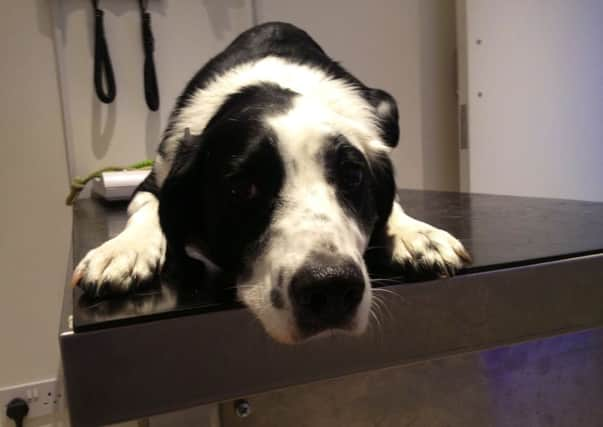At the vets: Man’s best friend? A dog can be a child’s best buddy too


Swimming with dolphins may always be everyone’s dream scenario, but they can’t live with children in the way pets can.
Children with disabilities benefit from many different kinds of animals, biggest benefits being relationships developed - becoming comfortable with them, learning about responsibility, and caring for another living being.
Advertisement
Hide AdAdvertisement
Hide AdFor example, assistance dogs are specifically trained to offer many different services, from guiding the visually impaired, alerting people with impaired hearing to specific sounds, seeking help when the person suffers a seizure (and predicting them too), as well as retrieving dropped items, opening doors, and helping individuals with balance.
Settled in their new home these phenomenal dogs continue to build on their skill set, accomplishing even more specific tasks, such as helping with laundry or making the bed!
Dogs provide companionship critical to development, with breeds e.g. Labradors commonly helping children with physical disabilities resulting from muscular dystrophy, cerebral palsy, road accidents, and other causes.
Assistance dogs enable children to feel independent and confidence by being with them 24/7 making them feel less ‘alone’, offering more freedom from their parents too (and vice versa). Dogs’ jackets inform strangers about the disability attracting positive attention, combating loneliness, and raising awareness of that charity/organisation too.
Advertisement
Hide AdAdvertisement
Hide AdWorking with animals keeps children motivated, using physical therapy, comfort, companionship and confidence, often leading to real progress in both physical and mental abilities. Some dogs are now even trained to raise the alarm when detecting miniscule blood sugar level changes in diabetic patients.
Mastering new skills is so important for children with disabilities, with activities e.g. riding horses helping treat diverse disabilities, including Downs Syndrome and autism. Riding also improves muscle tone, balance, posture, coordination, motor development, emotional well-being, and feeling independent away from wheelchairs.
To celebrate the relationship between children and animals come along to Worthing Carnival this coming Monday Bank Holiday afternoon as I’ll be judging the fun dog show on Steyne Gardens with all proceeds going to West Sussex’s amazing Chestnut Tree Lodge Children’s Hospice.
Visit www.GroveLodgeVets.co.uk